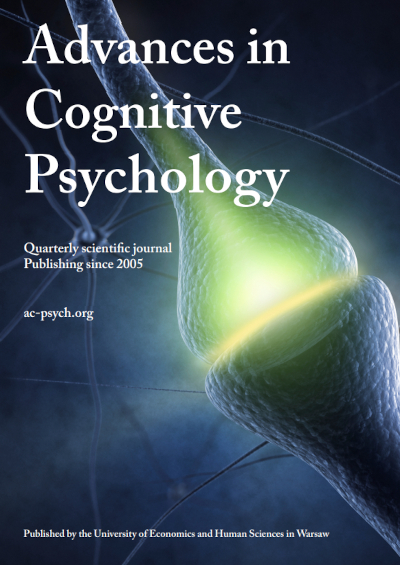Issue 1 On line:
Relationship Between Self-Control, Impulsivity, Reinforcement Sensitivity, Shopping Characteristics And Problematic Shopping Among Female and Male Emerging Adults
Andrzej Cudo, Agnieszka Fudali-Czyż, Natalia Kopiś-Posiej, Mark D. Griffiths

Andrzej Cudo, The Institute of Psychology, The John Paul II Catholic University of Lublin, al. Racławickie 14, 20-950 Lublin, Poland
Email: andrew.cudo@gmail.com
Problematic shopping, also known as compulsive buying or shopping addiction in its most extreme form, is a growing concern in modern consumer behavior. The present study examined the relationships between self-control, impulsivity, reinforcement sensitivity, shopping characteristics, and problematic shopping among emerging adult females and males. A sample comprising 1,075 Polish participants (835 females, 240 males), aged 18–30 years, was surveyed. The key variables (i.e., problematic shopping, impulsivity, self-control, and reinforcement sensitivity) were assessed with validated psychometric instruments. Path models were applied to evaluate the relationships between variables and gender differences. Problematic shopping was positively associated with motor and attentional impulsivity among females, while goal maintenance was negatively associated with problematic shopping among males. Among females, paying attention to product brands and credit/loan use was significantly associated with problematic shopping, while there was a negative association with paying attention to price. In both groups, problematic shopping was associated with increased online and offline shopping time. Results also indicated that reinforcement sensitivity (behavioral activation system – reward interest) was negatively associated with problematic shopping among females. The results suggested that motor impulsivity was more important in problematic shopping among females than males. The present study highlights the importance of impulsivity, self-control deficits, and shopping characteristics in developing problematic shopping behaviors. Gender differences indicate distinct mechanisms underlying problematic shopping tendencies. The findings contribute to a better understanding of problematic shopping and offer insights for targeted prevention and intervention strategies.
Keywords: problematic shopping, impulsivity, self-control, reinforcement sensitivity, consumer behaviorA Brief Form of the Empathic Sensitiveness Scale – Validation of the SWE-Short (S-SWE)
Maria Kaźmierczak, Sylwiusz Retowski, Mieczysław Plopa

Sylwiusz Retowski, SWPS University, Department of Psychology in Sopot, Polna 16/20, 81-745 Sopot.
Email: sretowski@swps.edu.pl
Mark Davis's (1999) theoretical model of empathy has garnered significant interest from researchers, as the multidimensional approach to empathy has been shown to be both theoretically and practically valid. The Polish adaptation of the empathy measurement method (Kaźmierczak et al., 2007) has proven effective across numerous studies, though one limitation is the scale's length (28 items). Motivated by successful efforts to develop shorter empathy scales (Grevenstein, 2020; Ingoglia et al., 2016), we set out to create a brief version of the scale in Polish. Based on the results of CFA conducted on two independent samples (n1 = 1841; n2 = 1835), we propose a 15-item version of the SWE-short (referred to as S-SWE). Similar to the 2007 version, the Polish SWE-short comprises three components: Empathic Concern, Personal Distress, and Perspective Taking. The analyses provide strong evidence that the SWE-short aligns well with the theoretically predicted model. While the reliabilities of all subscales are comparable to or slightly lower than those of the full version (Kaźmierczak et al., 2007), they are consistent with the results obtained by Davis (1980). Notably, negatively worded items were removed, as recommended by earlier research (Ingoglia et al., 2016). The intercorrelations between the empathy dimensions remained consistent with those observed in the original SWE. Convergent validity of the short version of the scale was also confirmed. Two from the SWE-short subscales were negatively correlated with psychopathy, Machiavellianism and narcissism. Additionally, measurement invariance between women and men was examined, and no significant differences due to measurement bias were identified.
Keywords: empathy, empathic concern, perspective taking, personal distress, CFAThe Impact of Cues on Children’s Response in Situations Involving Dangerous Complementary Actions
Liang Zhao, Biting Yan, Yuanyuan Wei, Yang Zhang

Liang Zhao, School of Education, Baoji University of Arts and Sciences, Baoji, No. 1 Hi-Tech Avenue, Baoji, Shaanxi 721000, China.
Email: acefgh123@163.com
Imitation is a crucial process through which humans learn. When individuals observe the actions of others, their corresponding action systems are automatically activated. Moreover, when the observed actions involve interaction intentions that require individual feedback, their response transitions from imitating the observed actions to performing complementary actions. Complementary actions refer to scenarios in social interactions where individuals perform physically inconsistent but goal-congruent behaviors to achieve collaborative tasks (e.g., one person hands a cup while another grasps it). Owing to the incomplete development of children’s cognitive and self-regulatory faculties, it is imperative to investigate the manner in which children perceive and respond to danger cues in dangerous complementary contexts that require feedback. In this study, primary school students were selected as the participants for the experiment. In Experiment 1, the impact of text cues on individual responses were investigated, with the results indicating that in the absence of text cues, a complementary effect was observed in both dangerous and neutral situations. In Experiment 2, the impact of picture cues on individual responses was investigated and the results showed that in the neutral situation, the presence or absence of picture cues had no significant effect on the complementary effect. In the absence of a picture cue in the dangerous situation, the complementary effect was significant, whereas it diminished when there was a picture cue. These findings demonstrate a clear influence of danger-signaling cues on young children’s reactions to potentially dangerous actions, especially when presented within a complementary context.
Keywords: action situation, imitation, complementary effect, cuesI’m So Proud of Myself: The Associations of Narcissism and Pride with Creativity
Piotr P. Brud, Sławomir Ślaski, Radosław Rogoza

Piotr P. Brud, Institute of Psychology, Cardinal Stefan Wyszynski University in Warsaw, Wóycickiego 1/3 Street, 01-938 Warsaw, Poland.
Email: p.brud@uksw.edu.pl
In this study, we examined the relationships between creativity and two distinct personality traits—narcissism and pride. Existing literature suggests that these traits are positively related to creativity; however, previous findings have been based primarily on self-reports. We extended this line of research by including both self-ratings (N = 265) and evaluations provided by independent observers (N = 261). Our results supported a positive link between self-reported creativity and both agentic narcissism and authentic pride. However, this self-perceived connection was not reflected in external evaluations, highlighting a discrepancy between self-perception and others’ judgements. Specifically, authentic pride showed a robust positive association with creativity in both self- and observer-reports, emphasizing its genuine and reliable nature. In contrast, the connection between agentic narcissism and creativity appeared only in self-reports and was absent in observer data.
Keywords: creativity, narcissism, pride, self-perception, observer-report


